If you've ever juiced a lemon or lime, you have felt the frustration of trying to get all the juice out. Maybe you wondered if there was a trick to getting all the liquid out. It turns out, there is! We have researched this trick as well as other questions related to these two citrus fruits.
To make juicing a lemon or lime easier, simply put it in a microwave. The heat in the microwave will make the cells in the fruit burst. As a result, the fruit will be juicier. This will make it much easier to extract one hundred percent of the fruit's juices.
Not only does this trick work with lemons and limes, but it will also work with other citrus fruits. Now that you know microwaving citrus makes it juicier, continue reading to learn more about how to use this trick and other tricks to make your lemons as juicy as possible.
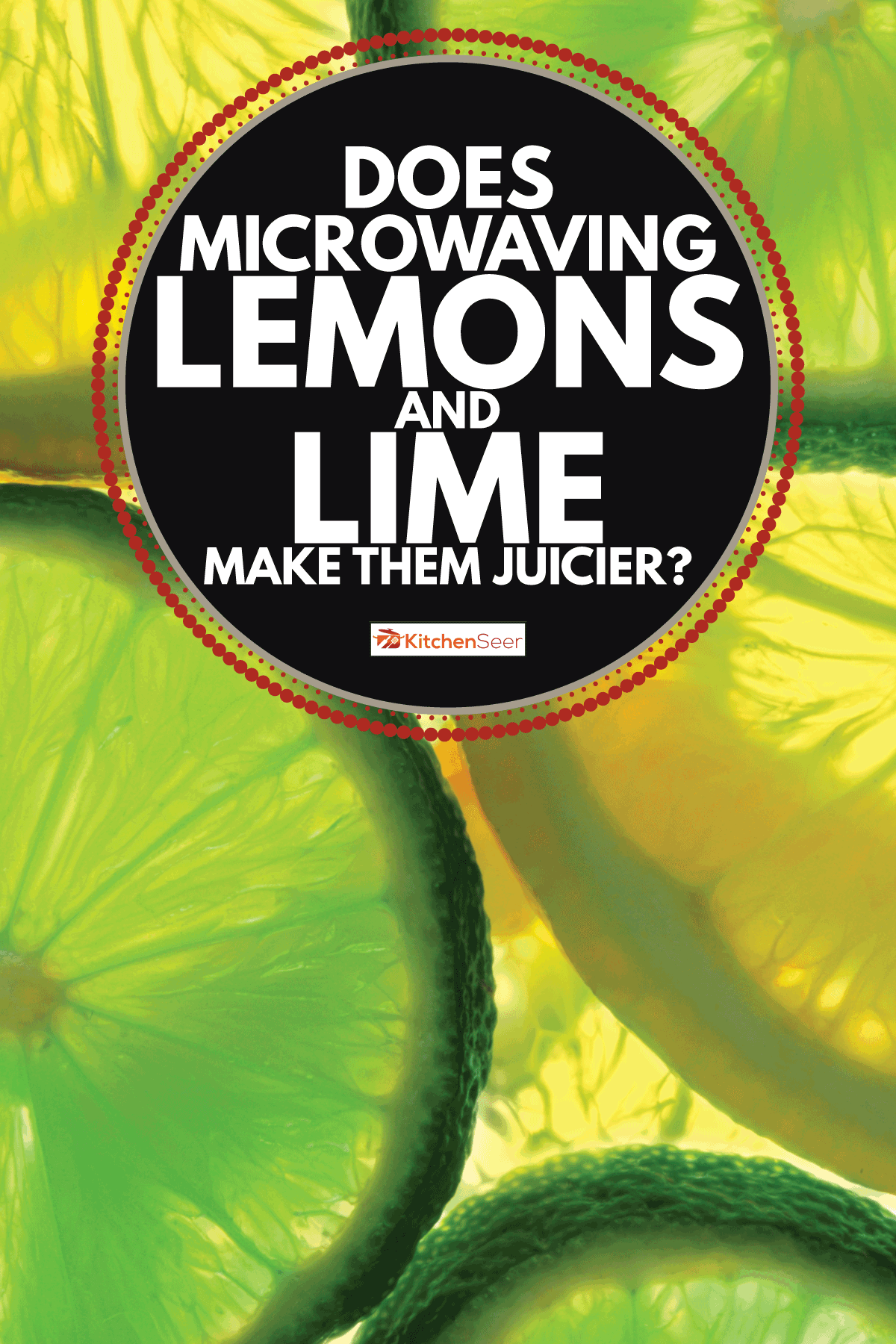
How Long Do You Microwave A Lemon To Get More Juice?
When you pop a lemon into the microwave, it doesn't take long to get maximum juiciness. On average, it takes about 10 to 30 seconds in the microwave. The larger the fruit is, the more time it needs. Most fruits seem to do well with a time of 20 seconds.
After cooking it, let it sit for a minute before cutting it open. Once it's cool, you can open it and juice it. While a manual juicer will yield even better results, hand-juicing is also effective once the fruit has been microwaved.
Why Does Microwaving Fruit Make It Juicier?
It is extremely common to store your fruit in the refrigerator. While this helps the fruit last longer, it also makes the fruit less juicy. This is because the coldness of the refrigerator makes the cells in the fruit become firm. As a result, if you juice a lemon directly from the fridge, you won't get much juice.
In comparison to a cold lemon, a lemon heated in the microwave will yield more juice. As the lemon is heated, the cells in the fruit become less firm and burst. When these cells burst, the juice flows freely and rapidly.
People online have tested this tip to see if it works. Kelli Foster on The Kitchn found that juicing two cold lemons yielded slightly less than 2/3 a cup of juice. In comparison, two lemons microwaved for 20 seconds yielded a whopping 3/4 cups of juice. As you can see, it makes a huge difference!
How Do You Make A Lemon Easier To Squeeze?
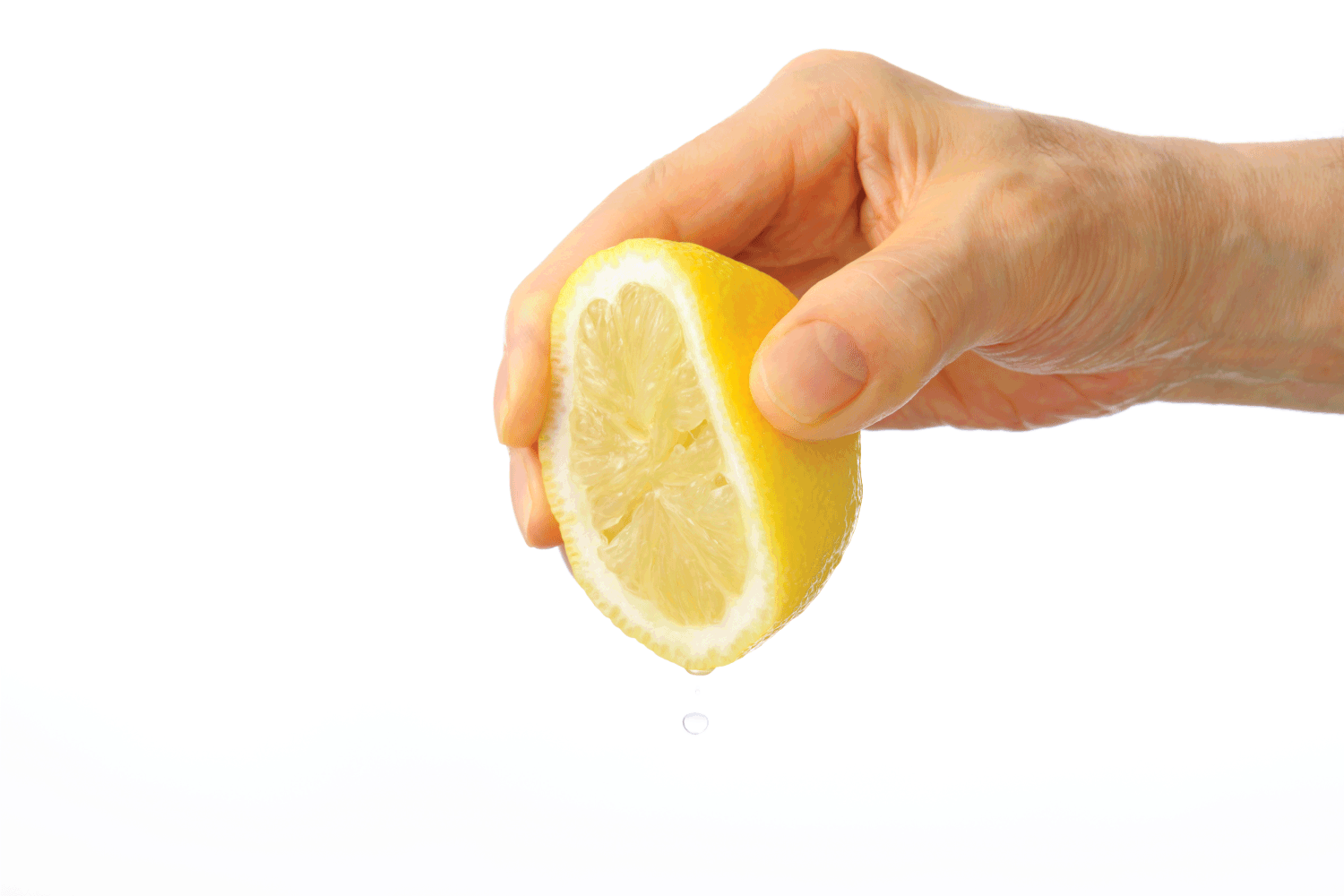
It can be quite a task to squeeze a lemon. In addition to microwaving your lemons, there are several other ways to do it. For example, you can warm the lemon in a cup of warm water or roll the fruit around on the table before juicing.
If you leave the fruit in warm water, you need to leave it there for about 30 to 40 minutes or until the lemon feels significantly softer. Make sure the water is warm, not boiling.
The way you cut the lemon can also make it yield more juice. If you cut it from top to bottom, you will get more juice out of it. Once it's cut lengthwise, you can stick the tines of a fork into the pulp on one half of the lemon, then move the fork every second. The fork piercing the lemon will allow the juice to run freely.
What Is The Best Way To Get Juice Out Of A Lemon?
The best way to juice a lemon is to use an electronic juicer. Electronic juicers will juice the lemon extremely quickly, as well as get all the juice out. Manual juicers and hand juicers are slightly more convenient because they don't require setup, but they won't juice the lemon as efficiently.
Before attempting to juice a lemon, you can do a couple of things to get more juice. One of these methods involves allowing your citrus to sit at room temperature for at least 30 minutes. You want the fruit to be at room temperature before attempting to juice. If you're in a hurry, you can microwave it.
Then, massage your citrus. Roll it firmly against the table and your palm. Right before juicing, cut your fruit open to expose the soft flesh. Now you're ready to juice your fruit!
High-Quality Juicers
As we discussed above, electric juicers are better than manual juicers. However, we have included both electric and manual juicers so you can find the perfect one for you!
Cuisinart Pulp Control Citrus Juicer
This juicer has three pulp settings and is made of stainless steel. Click here to check it out on Amazon!
Eurolux Electric Orange Juicer
Eurolux has built a juicer that has a special filter for catching seeds. To see it on Amazon, click here!
Zulay Professional Citrus Juicer
This hand press juicer is made of cast iron and is built to extract the most juice possible from the fruit. Click here to check it out on Amazon!
Slendor Commercial Citrus Juicer
Juicing citrus is easier with the Slendor Juicer. To see it on Amazon, click here!
SHANGPEIXUAN Fruit Juice Squeezer
This juicer is made of high-quality aluminum and has a detachable lime squeezer. To check it out on Amazon, click here!
Manual Citrus Rotation Press
Made of stainless steel, this product is rust-resistant and it is dishwasher safe. Click here to check it out on Amazon!
How Much Juice Is In Half A Lemon?
When you are making recipes, sometimes they won't tell you how much juice is needed in tablespoons or cups. They will say to put half or a whole lemon in. If you are using bottled lemon juice instead of fresh lemons, it can be tricky to know how much to add to the recipe. For this reason, we decided to research exactly how much juice there is in half a lemon and a whole lemon.
Every lemon can have a different amount of juice. They can yield between two to three tablespoons of juice, depending on their size. For this reason, it has been decided that one lemon is considered to have two tablespoons of juice. So, if a recipe calls for half a lemon, it wants one tablespoon of liquid.
How Much Juice Is In Other Citrus Fruits?
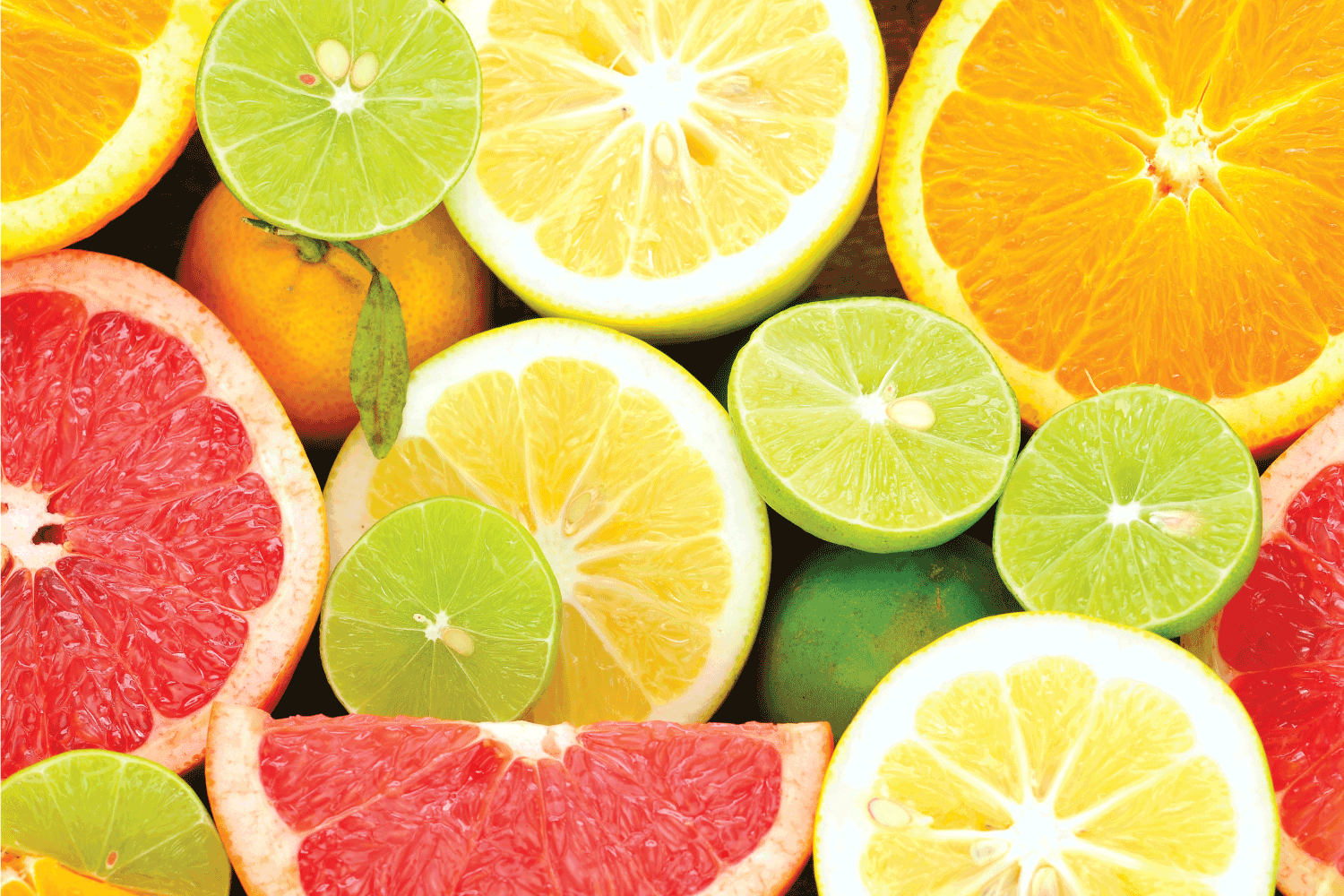
While we are talking about how much juice a lemon has, you might have been starting to wonder how much juice other fruits have. We looked up how much juice a lime, orange, and grapefruit have to satisfy that curiosity,
Even though limes tend to be smaller than lemons, they also yield about two tablespoons of juice. Oranges are significantly bigger than limes. As a result, they have four to five tablespoons of juice. This is 1/4 to 1/3 cup of liquid. If you want a cup of orange juice, you need about three oranges.
Grapefruits are juicier than even oranges. They can have a whopping 12 tablespoons, or 3/4 cup, of juice. This means it only takes about one-and-one-half to two grapefruits to make one-and-one-half cups of juice.
Happy Juicing!
Throughout this post, we have talked about the best ways to make your citrus fruits yield a lot of juice. These methods range from microwaving to rolling the fruit on the counter. In addition to that, we talked about how much juice various citrus fruits have.
If you enjoyed this article, check out the links below to explore more on this blog.
How Many Drinking Glasses Should You Own?
11 Types Of Food Processor Blades And How To Use Them








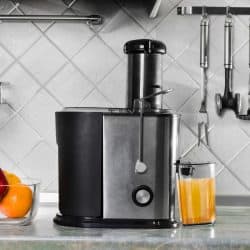
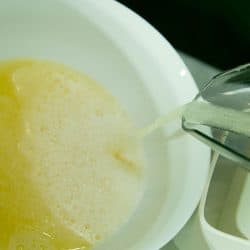
![New modern juicer and glass of fresh juice on table, How to Use a Breville Juicer [Step by Step Guide]](https://kitchenseer.com/wp-content/uploads/2023/01/New-modern-juicer-and-glass-of-fresh-juice-on-table-250x250.jpg)
![Hand zesting lemon using a grater, How To Zest A Lemon [5 Ways, Inc. Without A Grater]](https://kitchenseer.com/wp-content/uploads/2021/09/Hand-zesting-lemon-250x250.jpg)
